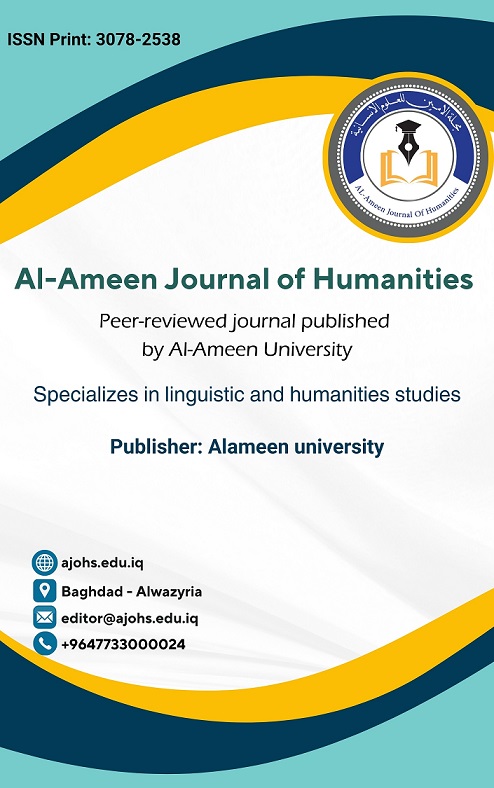(Ma) and Its Grammatical Implications
Abstract
In this research, light is shed on one of the Arabic letters because of its ambiguity and diversity in use, which is the letter (ma). Opinions about it have diverged among grammarians due to the difference in its positions between nominal, literal, and augmented. It was necessary to examine these different contexts for this letter and state opinions on it. Extract each context and express the most correct opinion to establish the grammatical rule for the state in which the letter is. The research is based on two chapters: The first chapter is devoted to (what) nominal knowledge is divided into two sections: The first chapter is devoted to (what) knowledge, and this in turn is divided into two requirements: The first requirement is incomplete (connected) knowledge, and the second requirement is complete knowledge, explaining the difference between them. . As for the second topic, it is specific to the indefinite article (ma), and it also has two requirements: the first requirement (ma), which is devoid of the meaning of the letter, including the imperfect, described, and the complete, and the second requirement (ma), which includes the meaning of the letter, including the interrogative and the conditional. As for the second chapter, it is specific to the literal (what) and includes three sections: The first section is specific to the negative (what) - Tamimiyah and Hijazi, and the second section includes (what) the source, and it has two requirements: the first requirement includes temporal (what) and the second requirement. It includes (what) is non-temporal, The second topic includes (what) the source, and it contains two requirements: the first requirement includes (what) is temporal, and the second requirement includes (what) is non-temporal, and the third topic is specific to the extra (what) and is divided into two requirements. The first requirement includes (what) all of it, and the requirement The second includes (ma) other than the kafa, and the kafa is of three types: kafa for the nominative action, the kafa for the accusative and nominative action, and the kafa for the genitive action. As for the non-kafa, they are either for compensation or for non-replacement, and (ma) is a substitute in one of two cases: in compensation for. It was although the infinitive, or a substitute for the verb, although the conditional, and the non-replacement is (what) the canceled, non-functioning addition that enters some letters and some adverbs, so it does not stop them from working.





